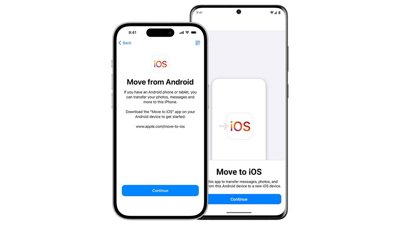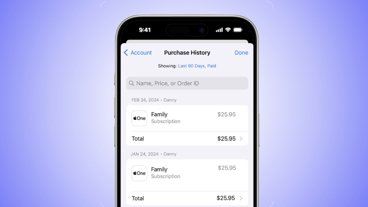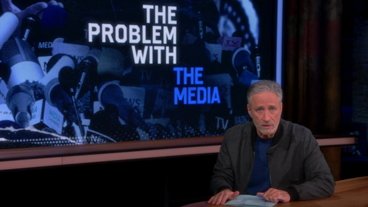Apple announced DRM-free music at Macworld last month while bowing to several years' worth of demands for variable pricing from the major labels in exchange.
According to the New York Times, the deal almost fell through at Christmas time. Apple had reportedly offered the labels a variable pricing deal last spring that would go into effect this April in return for wireless 3G downloads to the iPhone in January and the removal of FairPlay digital rights management from all songs on the iTunes Store.
Every label except for one signed on. Sony Music chairman Rolf Schmidt-Holtz wanted variable pricing to go into effect immediately upon the announcement of over-the-air song downloads while Apple chief executive Steve Jobs insisted on a waiting period, demanding variable pricing on the iTunes not go into effect until April of 2009.
"According to a person briefed on the telephone call, Mr. Schmidt-Holtz and Mr. Jobs had a heated exchange by phone on Christmas Eve," the Times reported. "Eventually, Sony gave in and agreed to a longer waiting period."
This is the latest in what at times has seemed like a long standoff between Jobs and music industry leaders. Not long after the iTunes Music Store was launched in 2003, Apple and the labels were at odds over everything from the price of songs to DRM to what gets promoted on the store's front page.
Background
In actuality, the competition began long before the launch. In a 2006 interview, Jobs described lengthy back-and-forth negotiations with record labels just to get the store off the ground.
"It was a process over 18 months," the Apple chief told Newsweek. "We got to know these folks and we made a series of predictions that a lot of things [the labels] were trying would fail."
It wasn't long before Apple's brain trust was proven right.
"Then they went and tried them, and they all failed, for the reasons that we had predicted," Jobs said. "We kept coming back to visit them every month or two, and they started to believe that we might actually have some insight into this."
Apple wields tremendous control in any negotiations thanks to its dominance of the online music download market. Labels can't afford to pull their catalog off the digital shelves without suffering significant losses, but that hasn't kept their executives from playing hardball.
In July 2007 Sony head Sir Howard Stringer reportedly characterized Jobs as a "greedy" hypocrite who was accusing the labels of being overly interested in money while at the same time trying to funnel money only to his company.
Around the same time, Universal Music Group and Apple were in a showdown over fixed 99-cent pricing as the chairman of Warner Music Group stated the labels' position (speaking about their own artists) that "not every song, not every artist, not every album is created equal." The labels wanted to price hot new tracks at higher prices to maximize profits at the height of their popularity. When Apple refused to budge, Universal threatened to pull its songs once the contract expired.
Universal and its peers had also demanded for months that Apple license FairPlay DRM to other sellers so tracks purchased from iTunes could be played on any device, claiming that was better for customer choice.
Instead, Jobs turned the tables, penning a February 2007 open letter in which he argued the labels should drop DRM altogether if they truly want interoperability. According to Jobs, licensing FairPlay would only have make it easier to circumvent once Apple disclosed its secrets to many people in many other companies.
"[Going DRM-free] is clearly the best alternative for customers," he wrote, "and Apple would embrace it in a heartbeat. If the big four music companies would license Apple their music without the requirement that it be protected with a DRM, we would switch to selling only DRM-free music on our iTunes store."
In response, Warner's Edgar Bronfman said Jobs' suggestion was "completely without logic or merit" while the RIAA missed Jobs' entire point and welcomed the non-existent offer to license FairPlay to other companies.
It also merits repeating that unlike Microsoft's agreement to give Universal a cut out of each Zune device sold, the labels don't get a penny from each iPod or iPhone that Apple sells.
Future Negotiations
While Apple has finally agreed to variable pricing to score its goal of DRM-free music, other battles could still loom ahead. In today's New York Times report, many executives say the future of music buying will be monthly subscription fees to vast catalogs that could be heard on customers' mobile phones.
While Jobs has never ruled out such a platform, he has also repeatedly rejected it on the grounds that "People want to own their music."
Music labels believe subscription models can boost revenues. Apple is already believed to have developed such a service, but hasn't pulled the trigger since, in Jobs' view, the subscription model has failed in the marketplace.
As recently as last March, Apple may have considered charging an added premium for iPhones and iPods in exchange for unlimited iTunes Store access. The key to any such service would involve whether or not the tracks "explode" when the service expires. Any successful strategy would most likely let people keep the songs they've already downloaded, considering Jobs once excoriated the subscription concept as "renting music".
Another point of contention could be who controls what music is promoted on the front page of the iTunes Store.
"Whether the industry likes it or not, the iTunes chart showing the most popular songs in America is a major influencer of how kids today discover and communicate with their friends what kind of music they like," former Epic president Charlie Walk told the Times. "It's a very powerful thing right now in American pop culture and immediately validates a hit song."
A March 2007 report explains many musicians now consider the iTunes front page a key to success, just as important as radio or TV airplay. Usually determined by staffers' tastes, promos on Apple's storefront also go to albums with discounted prices or exclusive tracks.
"[Apple] won't advertise your album unless you give them extra material," singer Lily Allen once complained.
Unlike other large retailers and online shops, Apple usually avoids paid placement, meaning companies can't "buy their way" to higher sales. As long as Apple continues to resist outside influence on its own iTunes Store frontpage, the dispute could be a major part of any future negotiations.
 Zach Spear
Zach Spear






-m.jpg)






 Christine McKee
Christine McKee
 William Gallagher
William Gallagher
 Amber Neely
Amber Neely

 Andrew O'Hara
Andrew O'Hara

 Sponsored Content
Sponsored Content
 Charles Martin
Charles Martin









55 Comments
The subscription model mail have failed for music but not for video. I for one want to see a subscription service on iTunes much the same at NetFlix.
I'm glad they got a DRM free deal worked out, but it's like these music industry guys keep coming to Apple with the worst ideas in the book. I wonder if they're serious about them, or if they just know that Apple won't bite, and they do it to have leverage against Apple's wishes.
I'd say no one could be that far out there and still run an industry, but they've lost billions, so maybe they can.
Unlike other large retailers and online shops, Apple usually avoids paid placement, meaning companies can't "buy their way" to higher sales. As long as Apple continues to resist outside influence on its own iTunes Store frontpage, the dispute could be a major part of any future negotiations.
Would the labels prefer iPayola?
The subscription model mail have failed for music but not for video. I for one want to see a subscription service on iTunes much the same at NetFlix.
It works with video because no-one want s to own videos. OK OK, some do but I can not understand why and for the most part people don't (except for Kid's vids, of course). Video's and movies are usually watched once only so a subscription makes sense. Music is different. Much more personal and listened to over and over.
As for paid promotion on the iTunes front page - all power to Apple. I am not sure how long they can remain in control of that element but I hope the record companies never will gain control. Let them have a link to a clearly labelled 'Promotion's page' where they can battle it out.
I love this part:
"[Apple] won't advertise your album unless you give them extra material," singer Lily Allen once complained.
As if a young thing like Lily Allen, working on her first album has any real insight into the "music business" (or business in general.)
This is like taking the opinion of someone opening their first Tim Horton's franchise on the state of the Food and Agriculture department.